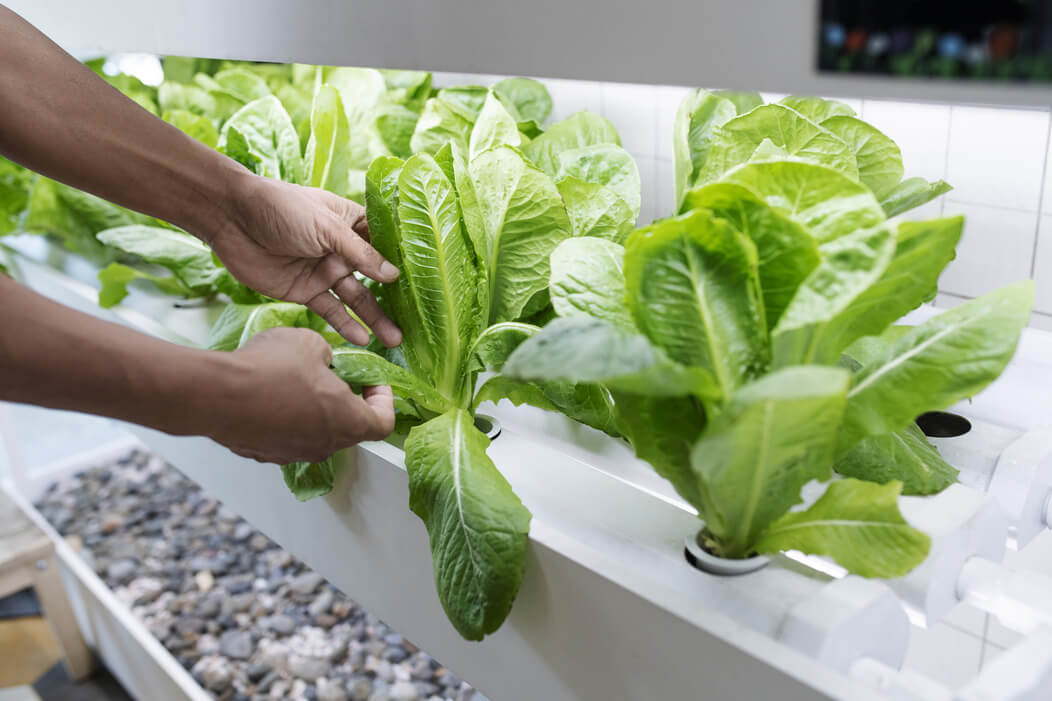Hydroponic gardening is a way of growing plants without soil, utilising nutrient-rich water instead. Nutrients play a critical part in hydroponic gardening, as plants rely completely on the nutrient solution for their growth and development. Without the right balance of nutrients, plants might grow stunted or even die. Therefore, selecting the proper type of fertiliser is crucial to ensure the success of a hydroponic garden. In this blog, we will focus primarily on organic hydroponic nutrients and what you need to know about them
What Are Organic Hydroponic Nutrients?
Organic hydroponic nutrients are derived from natural sources, such as plant matter, animal waste, and minerals. They are considered organic because they contain no synthetic or chemical compounds. Organic nutrients differ from synthetic nutrients in that they are typically slower-acting but provide a wider range of micronutrients and trace minerals. Additionally, organic nutrients are less likely to cause nutrient imbalances or pH fluctuations, which can negatively impact plant growth. The benefits of using organic hydroponic nutrients include improved plant health and growth, better crop taste and aroma, and a lower environmental impact.
Types of Organic Hydroponic Nutrients
- Macro-nutrients:
Macro-nutrients are essential nutrients plants need in large amounts. They include nitrogen, phosphorus, and potassium, as well as calcium, magnesium, and sulfur.
- Nitrogen (N) – important for plant growth and chlorophyll production; examples include blood meal, feather meal, and fish emulsion.
- Phosphorus (P) – important for root growth, flowering, and fruit development; examples include bone meal and rock phosphate.
- Potassium (K) – important for overall plant health and stress resistance; examples include kelp meal and wood ash.
Examples of organic macro-nutrient sources include compost, manure, fish emulsion, and seaweed extract.
- Micro-nutrients:
Micro-nutrients are essential nutrients that plants need in smaller amounts. They include iron, manganese, zinc, copper, boron, molybdenum, and chlorine.
- Iron (Fe) – important for chlorophyll production and overall plant health; examples include chelated iron and iron sulfate.
- Zinc (Zn) – important for enzyme activity and growth regulation; examples include zinc sulfate and zinc chelate.
- Copper (Cu) – important for photosynthesis and enzyme activity; examples include copper sulfate and copper chelate.
Examples of organic micro-nutrient sources include kelp meal, rock dust, bone meal, and feather meal.
These organic sources of nutrients can provide a balanced mix of macro and micro-nutrients that are crucial for healthy plant growth and development.
Sources of Organic Hydroponic Nutrients
Making a nutrient-rich solution for hydroponic gardening involves using organic hydroponic fertilisers from a variety of sources. Due to its abundance of macro- and micronutrients that plants need to thrive, compost is a well-liked substitute. Another source of organic nutrients, manure—such as that from chickens or horses—can provide a balanced mix of nitrogen, phosphorus, and potassium. Worm castings may improve soil structure because they are exceptionally rich in nutrients, particularly nitrogen. A variety of macro and micronutrients may be provided via a liquid fertiliser called fish emulsion, which is made from decaying fish. The last point is that seaweed extract is a natural source of micronutrients and trace elements that may enhance plant growth and overall wellness.
How to Use Organic Hydroponic Nutrients
When utilising organic hydroponic fertilisers, it’s crucial to combine and dilute them appropriately according to the recommendations on the container. This ensures that the plants get the necessary quantity of nutrients without nutritional imbalances. It’s also vital to avoid overfeeding or underfeeding the plants since this may lead to nutritional deficits or toxicities. Monitoring pH levels is critical in hydroponic farming since plants are more sensitive to pH variations than in soil. Maintaining a pH level between 5.5 and 6.5 is suggested for most hydroponic crops, and pH levels should be monitored often to promote maximum plant development.
Advantages of Organic Hydroponic Nutrients
- Improved plant growth and health owing to the utilisation of natural, organic sources of nutrients that may enhance root growth, blooming, and fruit production.
- Greater nutritional content in crops since organic sources of nutrients may be more readily absorbed by plants and can result in products with greater amounts of vitamins, minerals, and antioxidants.
- Lower environmental impact since organic hydroponic fertilisers are produced from natural sources and may be more sustainable than synthetic choices.
- Improved taste and scent of crops since organic hydroponic fertilisers may encourage the creation of essential oils and other compounds that contribute to flavour and aroma.
Disadvantages of Organic Hydroponic Nutrients
- Higher cost compared to synthetic nutrients owing to the usage of natural sources.
- Risk of contamination from organic sources like manure, which might include hazardous germs or pathogens.
- Limited shelf life of organic hydroponic fertilisers since they might rot or degrade over time if not kept correctly.
- Organic hydroponic nutrients may not be as easily accessible as synthetic choices, depending on the area.
- Organic nutrients may not supply the exact same nutritional profile as synthetic options, which may make accurate nutrient management more difficult.
Conclusion
In conclusion, organic hydroponic fertilisers may offer various advantages to hydroponic farming. These include enhanced plant growth and health, greater crop nutrient content, and a lesser environmental effect. However, they also have downsides, such as greater cost, limited shelf life, and a danger of infection. Overall, organic hydroponic fertilisers might be a wonderful alternative for individuals that favour sustainability and natural growing techniques. However, correct handling and monitoring are important to prevent nutrient imbalances and contamination.



